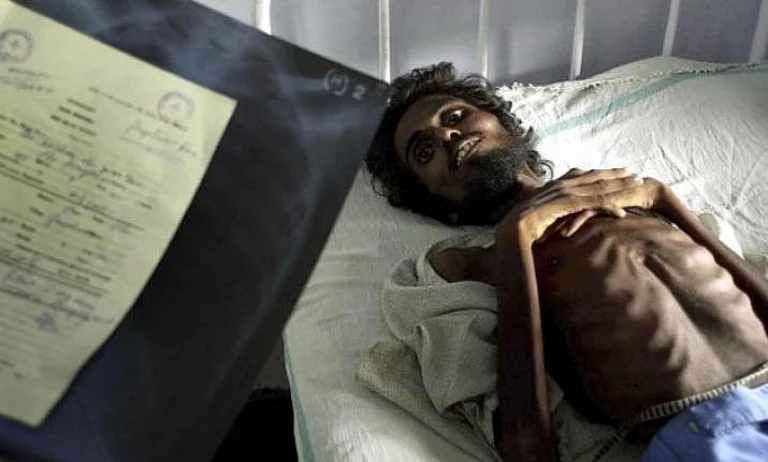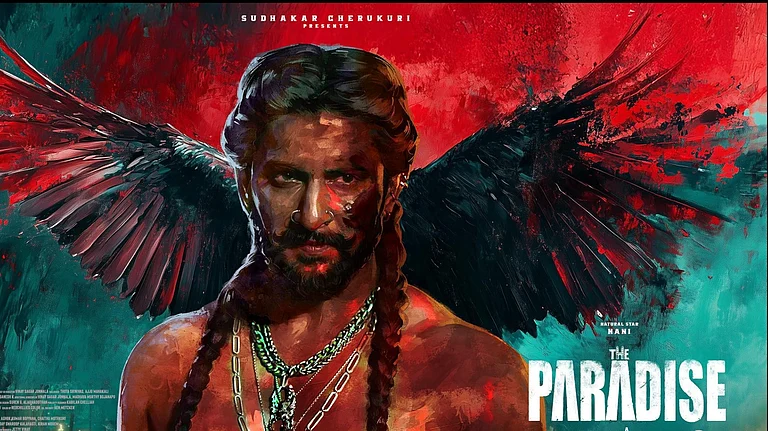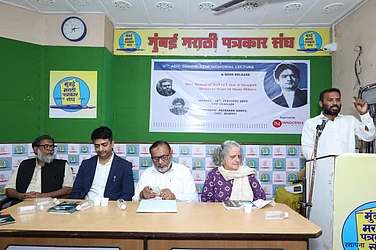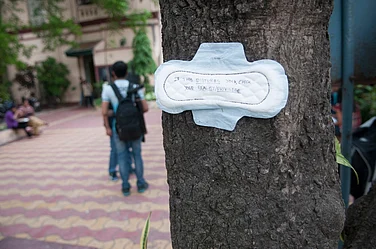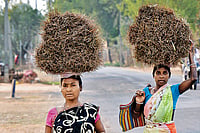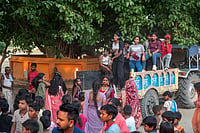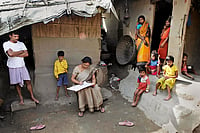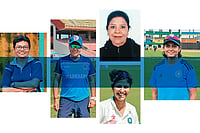In Ulihatu village of Khunti district, people’s presence begins increasing by November 1, compared to the rest of the year. By November 15, the village gets decorated like a giant stage for a mega event, which anyone can reach easily, crossing hoardings and banners installed alongside wide roads via Khunti, situated 35 km from the capital Ranchi and then another 28 km from there.
This time, the hustle and bustle in this village is greater than previous years because Prime Minister Narendra Modi is set to visit on November 15. Last year on November 15, for the very first time, the President of India visited Ulihatu, and this year, Narendra Modi would become the first Indian prime minister to do so.
Ulihatu is the birthplace of Birsa Munda, the national hero of the tribals of the country and their God of the Earth (Dharti Aaba). Birsa's birth anniversary is celebrated across the country as Tribal Pride Day and also as Jharkhand Foundation Day. Birsa Munda was born on 15 November 1875. He waged a struggle against the British, passed away on 9 June 1900 at 9 pm in Ranchi jail.
On November 15, Prime Minister Narendra Modi will launch the Vikas Bharat Sankalp Yatra from the same place. Apart from this, the Prime Minister will announce more than half a dozen government schemes worth 24 thousand crore, including the Particularly Vulnerable Tribal Groups Mission.
But questions about to what extent these announcements have changed the lives of the people here in the last 75 years remain unanswered. When I reached the village on 11 November, vehicles of the DC, BDO, DDC and other officials were reaching Ulihatu one after the other, to take stock of the preparations for the programme scheduled for 15 November. Hundreds of labourers were engaged in painting the roads, buildings and Birsa’s birthplace in the village. A tender worth lakhs of rupees had been floated for these decorations.
At a distance of around two hundred feet from Birsa’s birthplace, on the right side of the road, stands the oldest government primary school of Ulihatu. Children of the school were engaged in painting and cleaning the walls which had now become faded. Suman Sushila Topno, the teacher accompanying the children, stopped me in my tracks me and started expressing her helplessness.
“The government does not pay a single penny for painting these school walls. I am getting all this done with my salary. This has to be done every year from my salary. Birsa's birthplace is being given so many facilities in the name of development. This school is also in Ulihatu and caters solely to the children from this area, so at least the government could have taken care of it”
There are two teachers in all for the 55 children in the school. Apart from this school, there are two more government schools here. One is a girls middle school and the other is Birsa Residential School which employs only three permanent teachers for nearly 300 students.
Why do people of the village feel like prisoners at this time?
Sanatan Munda runs a Gulgula shop on an earthen scaffold in front of Birsa's birthplace. Thirty-five year-old Sanatan, who earns Rs 500-600 per day, is more worried about the fact that his shop will be closed on November 15 than excited about the Prime Minister's visit to the village.
He said, “It is a matter of sadness and worry for us that our shops will be covered that day. We will not even be allowed to leave the house. I am the only earning person in my house. Back when President Draupadi Murmu had come, we were not allowed to leave the house. Forget meeting the President, we were not even allowed to see her from a distance. It's like imprisonment. Perhaps the officers fear that if we are allowed to meet (them), we may present our problems.”
Regarding the officials who came to inspect the programme in the village, Sanatan says that they are indifferent to the villagers and their problems. Last year, when President Draupadi Murmu reached Ulihatu , she was able to meet only a few people: the descendants of Birsa Munda. The third and fourth generations of Birsa Munda’s lineage live in Ulihatu. Sukhram Munda is the great-grandson of Birsa Munda. The 84-year-old lives with his sons in the urban area of Khunti these days due to illness. When I reached the village, there was no one at his house.
Most of the population here belongs to the Munda tribe, whose main occupation is farming and labour. Sometimes they have to migrate from Jharkhand in search of work. Subar Singh Munda and Tiyusa Munda support their families by farming and occasionally doing daily wage labour. Both of them are so enraged by their condition that they say they are no longer proud of living in Birsa Munda’s village.
Subar Singh, 45, says, “When the President came, the police told us not to leave the house. If any minister comes here, they are not allowed to meet the villagers. No one talks to us. It is humiliating.”
Water supply to reach Ulihatu after 75 years
The people of the village have been quenching their thirst by fetching water from wells and ponds. After 75 years of independence and 23 years of the formation of Jharkhand, a pipeline has finally been laid this year in Ulihatu and people have been told that water will reach every household by November 15 when the PM arrives. But the villagers have little to no hope.
There is a dysfunctional hospital in the village and according to the villagers, neither does the doctor sit here every day nor are medicines available. The village also faces regular power cuts.
Forty-five-year-old Birang Mundain’s health has deteriorated significantly in the last three months and she is no longer able to walk properly. The disease she is suffering from can only be treated by the doctor who visits the village on a bicycle because no one is taking her to a hospital. Birang Mundain said, “We have three children. I am seeing the doctor who comes to the village. There is no facility in the village. The solar lights you are seeing were installed just yesterday (November 10). The toilet was built just two years ago. The roads, now flooded with lights, are all for November 15.”
Forty-year-old Sahachari Devi and 35-year-old Mombari Devi’s concerns on the village’s persisting problems resemble Birang Mundain’s. “When the President came here last year, the district administration had said that a plan worth about Rs 14 crore had been prepared for the supply of drinking water in Ulihatu village. Under the Jal Jeevan Mission, water was to be supplied to every household within six months. A year later, water still hasn’t reached all households.”
One of the biggest problems of Ulihatu is that the area is a dry zone. Due to this, apart from drinking water, there are persistent irrigation problems as well.
Angry villagers take a decision
Angered by not being allowed to meet the prime minister, a Gram Sabha meeting was held in Ulihatu village, where it was unanimously decided that if the villagers were not allowed to participate in the programmes, they would not allow anyone to visit either.
Nelson Munda, who attended the meeting and is the nephew of village head Nirmal Munda, said, “If the people of the village are not allowed to meet the prime minister, then from today onwards no one will come to Ulihatu. We will also send letters to Arjun Munda and PM Narendra Modi regarding the problems of the village. Every year we get only empty promises of development here. Things get white washed and painted a little. This does not really translate into any real development.”
Ulihatu has been given the status of a ‘model village’ just like Jharkhand has been declared Open Defecation Free (ODF). However, according to the village head, in Ulihatu, some toilets have been built but due to lack of water, most of them have been rendered useless and people are still forced to defecate in the open.
According to media reports, when Union Home Minister Amit Shah visited Ulihatu last in 2017, the then Chief Minister Raghubar Das had started the Shaheed Gram Vikas Yojana. Under this scheme, every house in the village was to be built by the government, but until November 2022, not a single house had been completed.
Ulihatu village falls under the Bari Nijkel panchayat. The head/mukhiya of the panchayat, Mariyat, insists regarding the Devi Awas scheme that so far not even half the people of the village have been able to get any housing. Mariyat said, “There is no development visible in the village. There is no water, no toilet and no medicine in the hospital. If you fall ill, you’d have to go to either a private hospital or as far as Adki block, which is ten kilometres away.”
The mukhiya reiterates that despite being a public representative, she has not been invited to the government programmes. When the president came last time, she was not invited and this time around when the PM is visiting, she is again yet to receive an invitation.
When Khunti DC and Adki BDO were contacted regarding the problems of the villagers, there was no response from their end.
Arjun Munda, Union Minister of Tribal Affairs, is the MP from Khunti. Before him, Kariya Munda had been the MP from here for several terms. In the last seven years, many ministers and leaders including Union Minister Rajnath Singh, Amit Shah and President Draupadi Murmu have made numerous promises and announcements to the people. But this village of about two hundred houses, has nothing tangible to show in terms of development apart from the name of Birsa Munda and the monuments associated with him.
(Translated by Iqbal)









